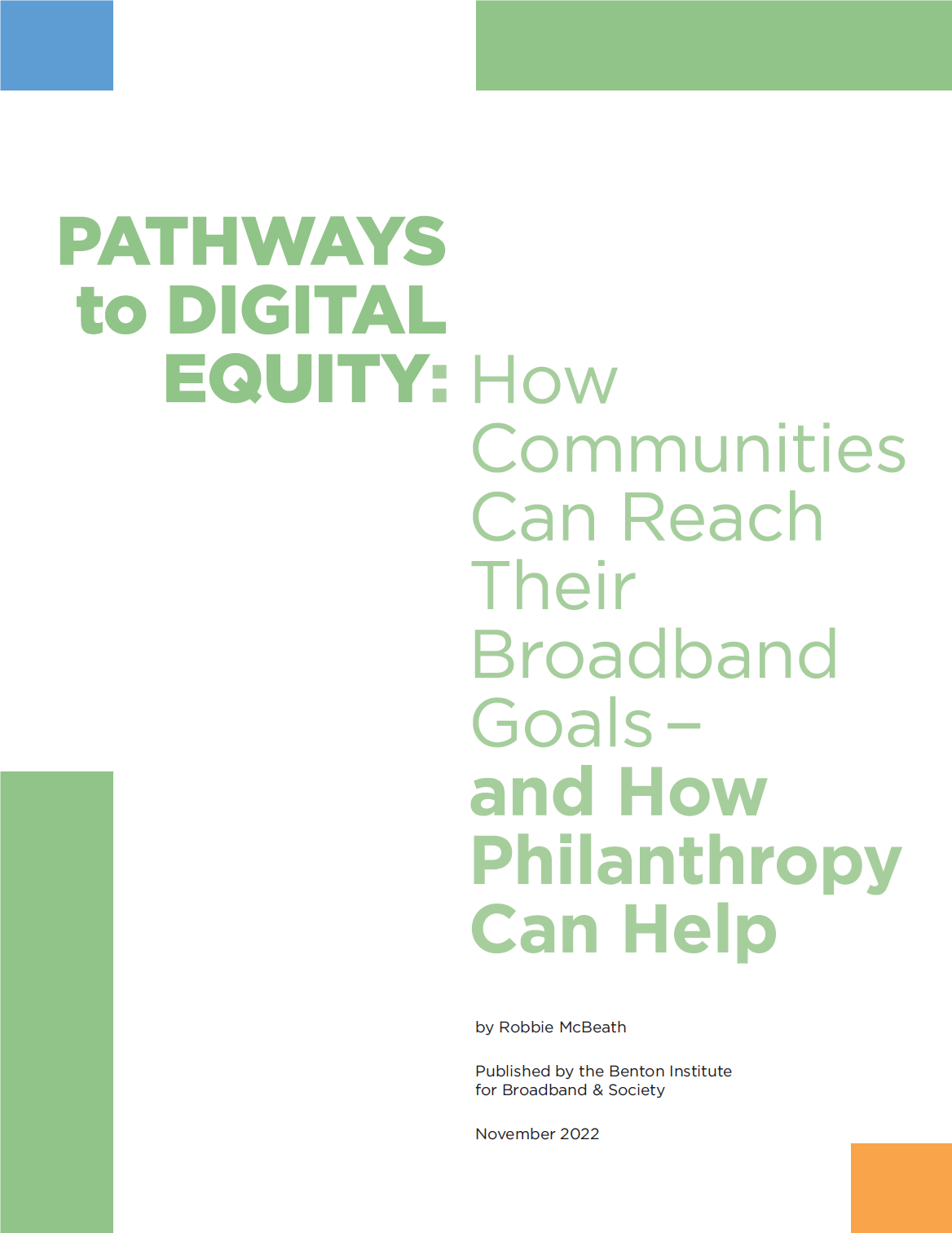Robbie McBeath

Everybody complains about the Rural Broadband Divide, but nobody does anything about it
How can we solve the rural broadband digital divide? On September 6, the Broadband Connects America (a new coalition which includes the Benton Foundation) offered a set of principles for attacking the problem. With countless federal, state, and local projects underway, if there's any telecom policy consensus these days, it is on this: we need better broadband data.

T-Mobile and Sprint Pitch Their Case Before Congress
Last week, T-Mobile and Sprint officially filed their public interest statement on their merger to the Federal Communications Commission (FCC).

AT&T-Time Warner and a Sea Change for the Internet
This has been, perhaps, one of the most important weeks in the history of the Internet. On June 11, the repeal of net neutrality consumer protections went into effect, laying the regulatory groundwork for large Internet service providers to (transparently) favor some (their own) content. On June 12, a court approved a huge combination of content with a major internet service provider. We can do the math.

Is Facebook a 'Bug' in Our Democracy? Part 3
[Commentary] We are in a brave new world. Facebook and 'Big Tech' have contributed to the erosion of our democratic discourse. We need to have these new titans assume responsibilities on par to the influence they have over our information ecosystem. We need to address this bug in our democracy. Short-term policy solutions can help curb some of Facebook’s harmful effects, but the larger task before policymakers -- and all of us -- is to critically examine the long-term health of our democratic discourse.

Is Facebook a 'Bug' in Our Democracy? Part 2
[Commentary] Is it time to recognize that Facebook, and ‘Big Tech’ at large, may be a bug in our democracy? In Part 1, I examined how the Facebook-Cambridge Analytica story illustrates the harmful effects of “Surveillance Capitalism.” The erosion of our privacy is contributing to the declining health of our democratic discourse. Moreover though, Facebook has facilitated the proliferation of hate speech, fake news, and international electoral interference.

Year One: Trump vs The Free Press
January 20, 2018 marks the one-year anniversary of Donald Trump’s inauguration. Last week, we documented the Federal Communications Commission’s policy priorities of the past year. This week, we look at President Trump’s war with the press. One of the greatest concerns going into the Trump Presidency was how his Administration would interact with the press. Just eight days into the Trump administration, we published The First Casualty is the Truth: Trump's Running War With the Media, which described the first combative week of the President Trump-press relationship.

Disney to Buy Fox. Was The Repeal of Net Neutrality A Factor?
On the same day the Federal Communications Commission voted to repeal its 2015 network neutrality rules, the Walt Disney Company announced a deal to buy most of 21st Century Fox. The all-stock transaction is valued at roughly $52.4 billion. If approved, Disney would go from being “a juggernaut to being a megajuggernaut.” Disney hopes the acquisition of Fox’s sports and entertainment content will give it new market power in the growing online distribution market (streaming services). The FCC’s move is not unrelated.
For community leaders striving for digital equity, this guidebook will help communities evaluate and meet specific connectivity needs.

Illinois Connected Communities Round 1: Leveraging the Power of Local Communities
The first round of the Illinois Connected Communities program is beginning to wind down. The program is an education and capacity-building project that pairs critical philanthropic resources with state funding — with a goal of serving 30 under-resourced Illinois communities over three years. Selected communities complete a community-driven, broadband strategic plan that articulates the community’s vision and identifies an action plan for progress toward improved broadband access, adoption, and/or utilization.
Reactions to House Passage of the American Rescue Plan Act, $7.1 Billion Emergency Connectivity Fund
On March 10, the US House of Representatives passed the American Rescue Plan, a coronavirus relief package that includes more than $7 billion in funding for the E-Rate program to support emergency broadband connectivity and devices for schools and libraries and their students, staff, and patrons.

